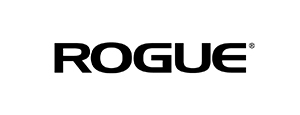WARNING – Предупреждение – AVISO (MILDRONATE)
WARNING Referring to our previous warnings we would like to reiterate this very important message concerning a new prohibited substance! The 2016 List of Prohibited Substances and Methods become effective as of the 1stJanuary 2016 and since this date a new substance called MILDRONATE (Meldonium) is considered as prohibited! The IWF Anti-Doping Commission would like to specifically call everyone’s attention to the most used trade names for the substance are: mildronate, meldonium, Quaterin, Kvaretin, THP. Please note that this is not an exhaustive list. There may be other medications, supplements which could contain mildronate (labelled or not labelled). According to recent scientific publications of the WADA accredited laboratories Cologne and Moscow, 2-17 % of doping control samples collected in 2014 and 2015 contained mildronate. There are already multiple findings for mildronate in other sports in 2016. The IWF ADC strongly advise everyone to carefully review the prohibited list and comply accordingly! Предупреждение В продолжение наших предыдущих предупреждений мы желаем особо отметить это очень важное сообщение относительно нового запрещенного вещества! 1 января 2016 года вступает в силу Список запрещенных субстанций и методов 2016 года, и с этого времени новый препарат под названием MILDRONATE (мельдоний) рассматривается как запрещенный! Антидопинговая комиссия IWF желает особо обратить ваше внимание на наиболее часто используемые торговые наименования препаратов, в которых используется это вещество: милдронат, мельдоний, Quaterin, Kvaretin, ТНР. Обратите внимание, что это неисчерпывающий список. Могут существовать и другие лекарства, добавки, содержащие милдронат (маркированные или немаркированные). Согласно последним научным публикациям аккредитованных ВАДА лабораторий в Кельне и Москве, 2-17% образцов, собранных на допинг-контроль в 2014 и 2015 годах содержали милдронат. В других видах спорта в 2016 году милдронат уже был обнаружен. IWF ADC настоятельно советует всем внимательно изучить список запрещенных веществ и действовать соответственно! AVISO Refiriéndose a nuestros avisos anteriores, quisiéramos reiterar este mensaje muy importante sobre una nueva sustancia prohibida. La Nueva Lista de Sustancias y Métodos Prohibidos es válida desde el 1 de enero de 2016 y desde esta fecha una nueva sustancia llamada MILDRONATE (Meldonium) está considerada como prohibida. La Comisión de Antidopaje de la IWF quisiera llamar específicamente la atención de todo el mundo sobre los nombres comerciales más utilizados de esta sustancia: mildronate, meldonium, Quaterin, Kvaretin, HTP. Por favor téngase en cuenta que esta lista no es completa. Puede haber otros medicamentos, suplementos que podrían contener mildronate (etiquetados o no etiquetados). Según las últimas publicaciones científicas de los laboratorios de Colonia y Moscú, ambos acreditados de WADA (Agencia Mundial Antidopaje), 2-17% de las muestras recogidas en 2014 y 2015 contuvieron mildronate. Ya hay varios resultados de mildronate en otros deportes en 2016. La Comisión de Antidopaje de la IWF aconseja firmemente que se revise con cuidado la lista de sustancias prohibidas y se cumpla como












